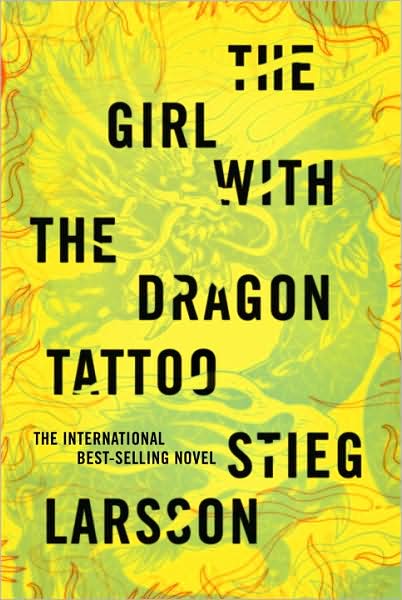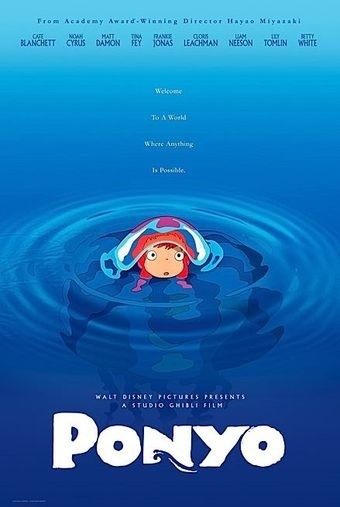February may be Black History Month, December may be the ‘Holiday Season,’ June 21st may be the summer solstice, but September will always be, for me, Swedish Mystery Month. Last September I reviewed Henning Mankell’s
Firewall on this
same blog, and recently I have begun reading the most page-turning mystery I’ve come across since that book– which also happens to be from Sweden.
The Girl with the Dragon Tattoo was written by
Stieg Larsson (1954-2004), who died of a sudden heart attack shortly after completing this book and its’ sequel,
The Girl who Played with Fire. (Both books are available through
NExpress).That Larsson’s death was considered suspicious by some, who suspected a possible murder due to the death threats Larsson received for his left-wing political journalism, is probably untrue though highly (creepily) appropriate in relation to his book.
The Girl with the Dragon Tattoo is a book that is infused with the threat of conspiracy and uses the often shady world of news journalism as its’ background.

The book is also a compendium of a handful of mystery sub-genres, albeit ones that are so specific they have no names. There is the Financial/Business-Intrigue story, which we are first introduced to when we meet the protagonist Mikael Blomkvist, a wealthy journalist and co-publisher of
Millenium magazine, who has recently been sued for libel by a wealthy industrialist and will soon be spending some time in prison. He is at risk of losing his job and
Millenium is at risk of going under, both which are causing a rift between him and his publishing partner-cum-lover, Erika Berger. Yet when he is hired by a wealthy, retired capitalist, Henrik Vanger, to investigate the dissappearence of the latter’s niece, his prospects start looking better. Before long Henrik has become a partner of
Millenium magazine, although this partnership as well as his obsession over his missing niece reek of personal agenda.
The second sub-genre is the pulpy, blackmail story. In another plot thread, a young girl with a troubled past has been hired as a reporter at a separate magazine. Her name is Lisbeth Salander, and while own her journalistic expertise is not in question, her own safety, and mental acuity, is. She has been assigned to a new social worker, as her mother is wasting away in a nursing home and she has had many run-ins with the law. But her mistrust of virtually everybody and her disregard of journalistic ethics– she is assigned to do a profile of Mikael Blomkvist– will undoubtedly come in to question. I will not give away the blackmail part or the sensational part of this story, as I do not know where it will end up myself.
The third sub-genre is the love-affair scandal story. Blomkvist begins an affair with the daughter-in-law of Henrik Vanger, who lives nearby, alone and lonely. The affair seems innocent, but she may not be.
The fourth, and overriding, sub-genre is the murder mystery. Was Vanger’s niece murdered? Is she still alive? Is the murderer still out there? There is evidence that points in all directions.
The Girl with the Dragon Tattoo was a bestseller all over Europe in the past two years. It is written by a man who had an authentic background in the profession of journalism, and the writing style itself– while sometimes clumsy– has a journalistic precision to it. Although the title itself may be intriguing enough for a fun mystery read, the original Swedish title–
Man Som Hatar Kvinnar— is even better; literally translated as ‘Men who Hate Women.’ There are certainly a few men who hate women in this overwrought, sprawling mystery, and a certain sociological context is always in the background, hinted at by the subtitles below each new ‘part’ of the book. I have not even finished the book myself, so this cannot be considered a true book review, but Stieg Larsson deserves to be read, for his compulsive readability, if nothing else.


 The book is also a compendium of a handful of mystery sub-genres, albeit ones that are so specific they have no names. There is the Financial/Business-Intrigue story, which we are first introduced to when we meet the protagonist Mikael Blomkvist, a wealthy journalist and co-publisher of Millenium magazine, who has recently been sued for libel by a wealthy industrialist and will soon be spending some time in prison. He is at risk of losing his job and Millenium is at risk of going under, both which are causing a rift between him and his publishing partner-cum-lover, Erika Berger. Yet when he is hired by a wealthy, retired capitalist, Henrik Vanger, to investigate the dissappearence of the latter’s niece, his prospects start looking better. Before long Henrik has become a partner of Millenium magazine, although this partnership as well as his obsession over his missing niece reek of personal agenda.
The second sub-genre is the pulpy, blackmail story. In another plot thread, a young girl with a troubled past has been hired as a reporter at a separate magazine. Her name is Lisbeth Salander, and while own her journalistic expertise is not in question, her own safety, and mental acuity, is. She has been assigned to a new social worker, as her mother is wasting away in a nursing home and she has had many run-ins with the law. But her mistrust of virtually everybody and her disregard of journalistic ethics– she is assigned to do a profile of Mikael Blomkvist– will undoubtedly come in to question. I will not give away the blackmail part or the sensational part of this story, as I do not know where it will end up myself.
The third sub-genre is the love-affair scandal story. Blomkvist begins an affair with the daughter-in-law of Henrik Vanger, who lives nearby, alone and lonely. The affair seems innocent, but she may not be.
The fourth, and overriding, sub-genre is the murder mystery. Was Vanger’s niece murdered? Is she still alive? Is the murderer still out there? There is evidence that points in all directions.
The Girl with the Dragon Tattoo was a bestseller all over Europe in the past two years. It is written by a man who had an authentic background in the profession of journalism, and the writing style itself– while sometimes clumsy– has a journalistic precision to it. Although the title itself may be intriguing enough for a fun mystery read, the original Swedish title–Man Som Hatar Kvinnar— is even better; literally translated as ‘Men who Hate Women.’ There are certainly a few men who hate women in this overwrought, sprawling mystery, and a certain sociological context is always in the background, hinted at by the subtitles below each new ‘part’ of the book. I have not even finished the book myself, so this cannot be considered a true book review, but Stieg Larsson deserves to be read, for his compulsive readability, if nothing else.
The book is also a compendium of a handful of mystery sub-genres, albeit ones that are so specific they have no names. There is the Financial/Business-Intrigue story, which we are first introduced to when we meet the protagonist Mikael Blomkvist, a wealthy journalist and co-publisher of Millenium magazine, who has recently been sued for libel by a wealthy industrialist and will soon be spending some time in prison. He is at risk of losing his job and Millenium is at risk of going under, both which are causing a rift between him and his publishing partner-cum-lover, Erika Berger. Yet when he is hired by a wealthy, retired capitalist, Henrik Vanger, to investigate the dissappearence of the latter’s niece, his prospects start looking better. Before long Henrik has become a partner of Millenium magazine, although this partnership as well as his obsession over his missing niece reek of personal agenda.
The second sub-genre is the pulpy, blackmail story. In another plot thread, a young girl with a troubled past has been hired as a reporter at a separate magazine. Her name is Lisbeth Salander, and while own her journalistic expertise is not in question, her own safety, and mental acuity, is. She has been assigned to a new social worker, as her mother is wasting away in a nursing home and she has had many run-ins with the law. But her mistrust of virtually everybody and her disregard of journalistic ethics– she is assigned to do a profile of Mikael Blomkvist– will undoubtedly come in to question. I will not give away the blackmail part or the sensational part of this story, as I do not know where it will end up myself.
The third sub-genre is the love-affair scandal story. Blomkvist begins an affair with the daughter-in-law of Henrik Vanger, who lives nearby, alone and lonely. The affair seems innocent, but she may not be.
The fourth, and overriding, sub-genre is the murder mystery. Was Vanger’s niece murdered? Is she still alive? Is the murderer still out there? There is evidence that points in all directions.
The Girl with the Dragon Tattoo was a bestseller all over Europe in the past two years. It is written by a man who had an authentic background in the profession of journalism, and the writing style itself– while sometimes clumsy– has a journalistic precision to it. Although the title itself may be intriguing enough for a fun mystery read, the original Swedish title–Man Som Hatar Kvinnar— is even better; literally translated as ‘Men who Hate Women.’ There are certainly a few men who hate women in this overwrought, sprawling mystery, and a certain sociological context is always in the background, hinted at by the subtitles below each new ‘part’ of the book. I have not even finished the book myself, so this cannot be considered a true book review, but Stieg Larsson deserves to be read, for his compulsive readability, if nothing else.